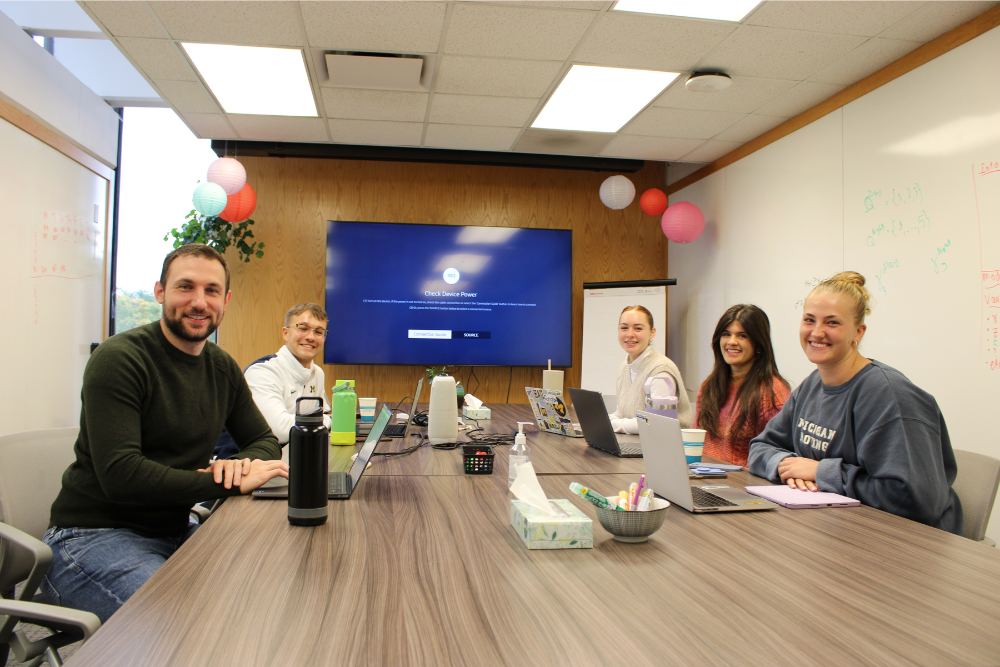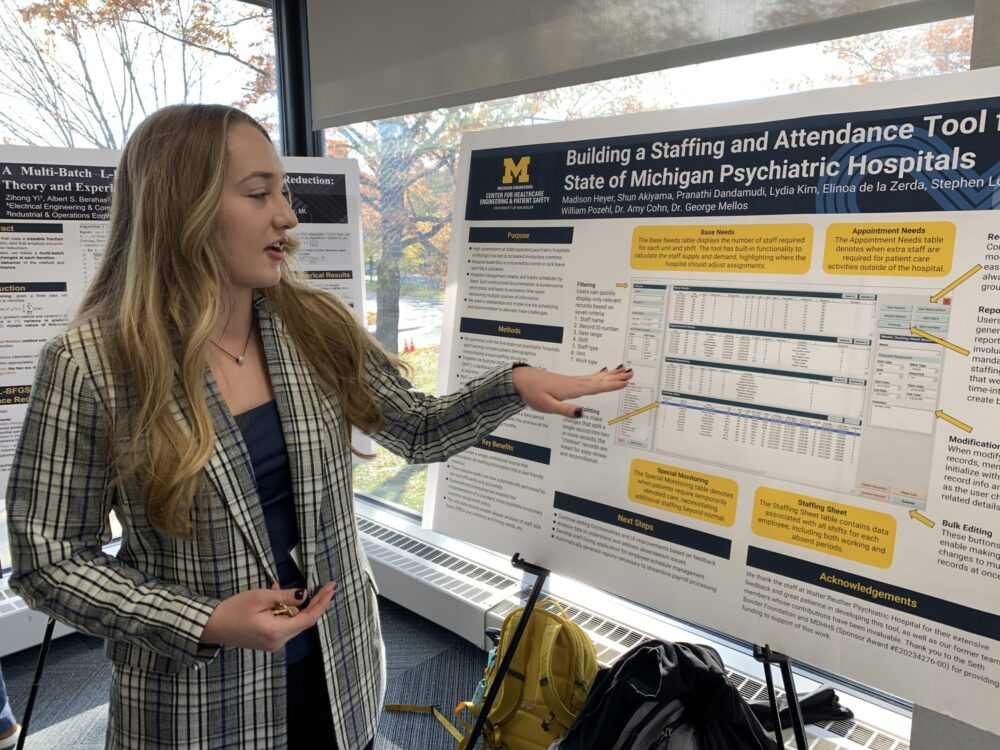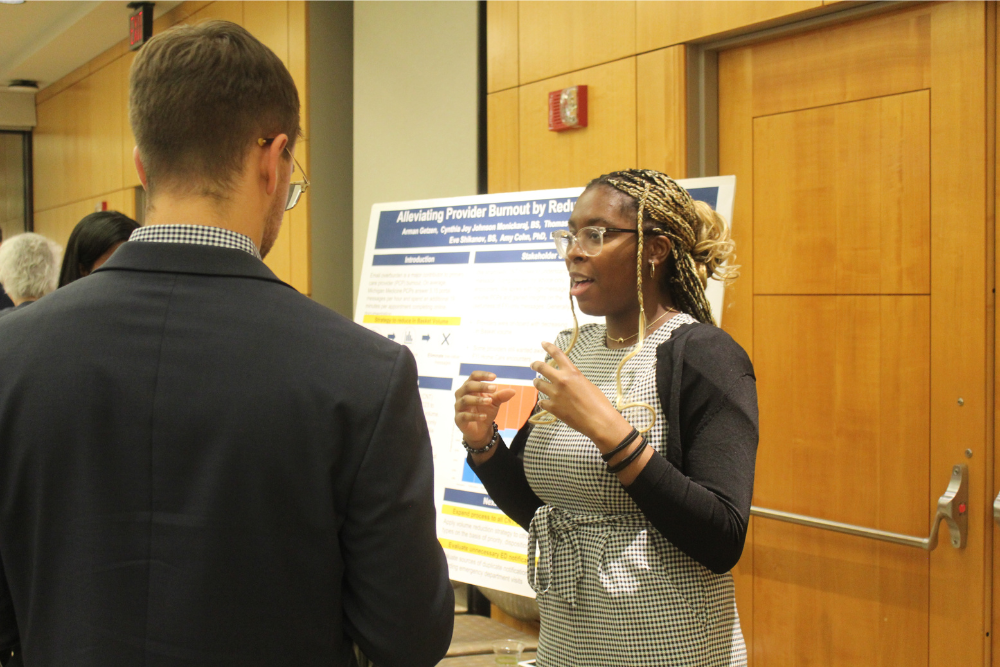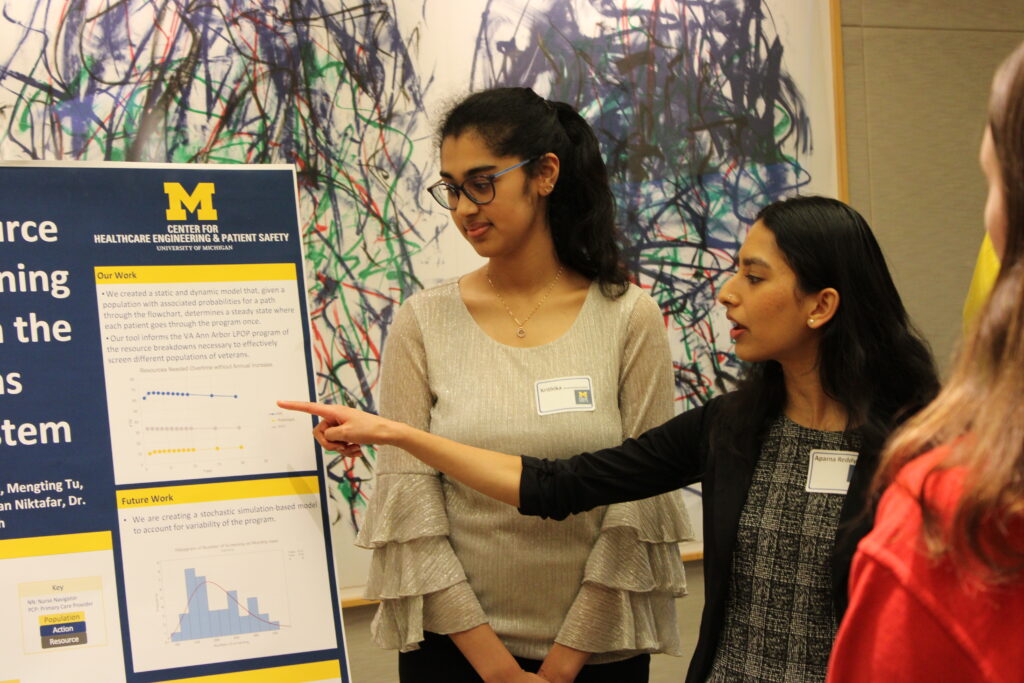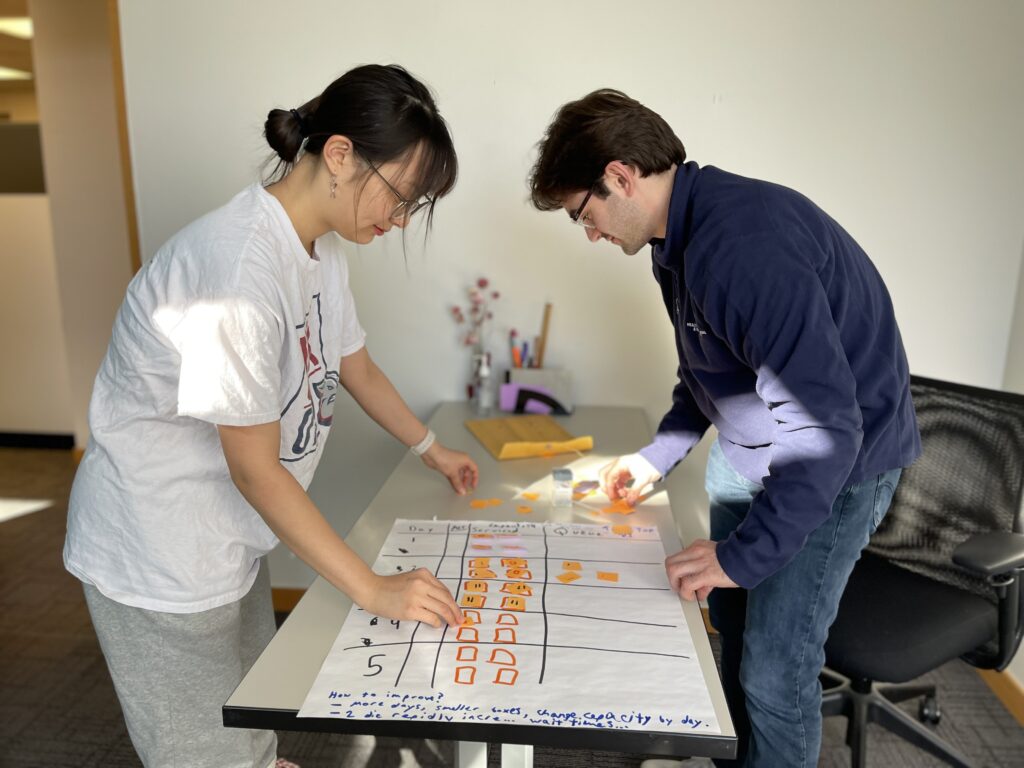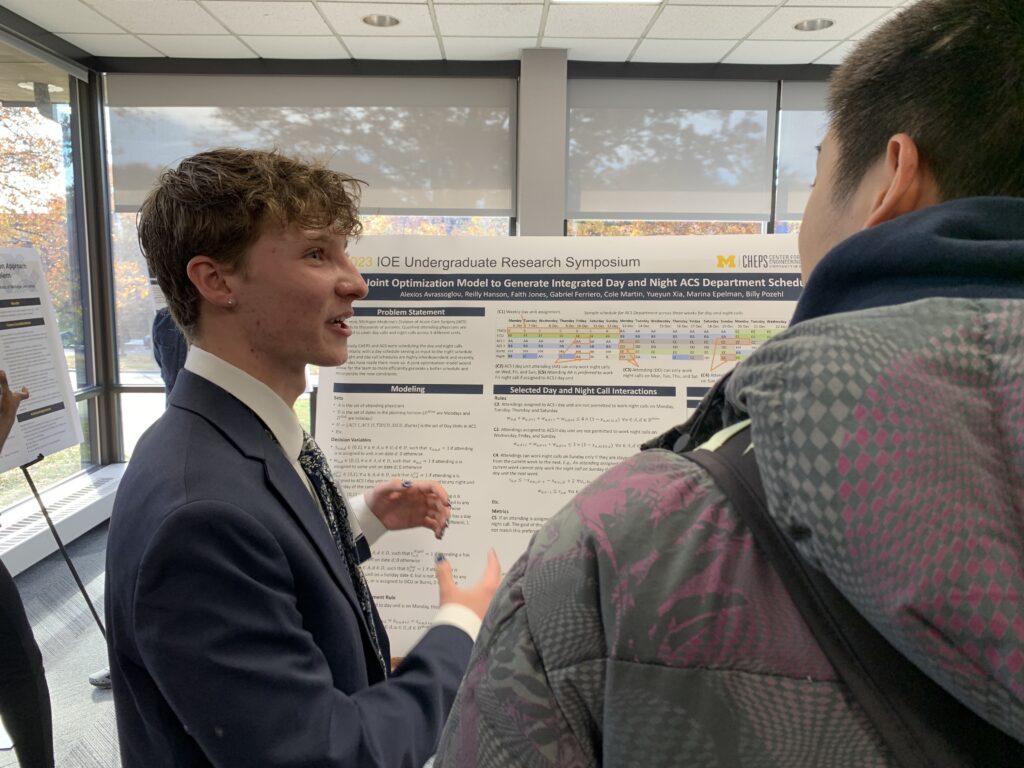Reducing Emergency Department Crowding (REDC)
REDC is a new project this semester focused on better understanding the process flows in the Michigan Medicine Emergency Department. The team combines data analytics with clinical shadowing to identify strategies to reduce patient wait-time and length of stay, and to improve provider well-being.
State Hospital Staffing (SH STAFFING)
The SH Staffing team is building a scheduling tool for the staff at state-run psychiatric hospitals. The tool enables hospital leadership to more efficiently track and manage staff schedules and attendance and address concerns related to absenteeism, overtime, and staffing imbalances.
In Basket Overburden Team (IBOT)
The IBOT team uses data analytics and visualization to identify non-value-added messages being sent to provider In Baskets. They also apply statistical methods to explore potential inbox volume disparities amongst providers. By eliminating non-value-added messages, the team works to decrease provider burnout by reducing the amount of effort needed outside of regular clinical visits.
Methods for Estimating Resources for Clinical Intervention (MERCI)
MERCI uses simulation software to better allocate resources for lung screening implementation at the Veterans Affairs Ann Arbor Healthcare System in the hopes of improving patient outcomes and maximizing clinical efficiency.
Improving New Patient Access (INPA)
INPA assists Michigan Medicine by researching new tactics to increase the accessibility of care to new patients. The team develops discrete event simulations to estimate the impact of different scheduling approaches, and ultimately decrease the lead time of new patients.
Personalized Screening Algorithms for Maternal Health (PSAMH)
PSAMH is looking at creating an algorithm to evaluate both social and health factors that go into treatment plans for pregnant patients. The team aims to find the optimal results for treatment to increase patient equity.
Reimagining Operations for Antenatal Care Delivery (ROAD)
The ROAD team aims to improve health outcomes for socially and medically high-risk prenatal patients by simulating Michigan Medicine’s care plans. The team hopes to intake information about clinical capacity and patient volume data.
Development Operations (DEVOPS)
DevOps is an internal project this semester focusing on improving CHEPS’s approach to solving optimization problems. DevOps is focused on revamping the existing CHEPS code library in order to create a more organized and user-friendly optimization library for all CHEPSters to use.
Provider Scheduling (PROV SCHED)
The Provider Scheduling team works to more efficiently build high-quality schedules for Michigan Medicine clinicians from a variety of specialties.
Design & Formulation
The Design & Formulation sub-team creates mathematical models to meet the scheduling needs of our clinical partners, as well as evaluates existing models for ways to iteratively improve our scheduling tools to meet evolving departmental needs.
Coding
The Coding sub-team is in charge of implementing the rules determined by the formulation team into the coding scripts that the schedules are generated from.
Users
Users are the main contact point to our clinical partners. The Users sub-team is in charge of building schedules as well as translating information provided by our partners to the other appropriate Provider Scheduling subteams.
Quality Assurance
The Quality Assurance sub-team exhaustively tests and attempts to break our Provider Scheduling tools. They relay any issues back to the Coding team to fix the code.
UI/UX
The UI/UX sub-team is developing a web application that will provide a centralized platform on which our clinical partners can review and update rules and inputs for their respective scheduling projects.

